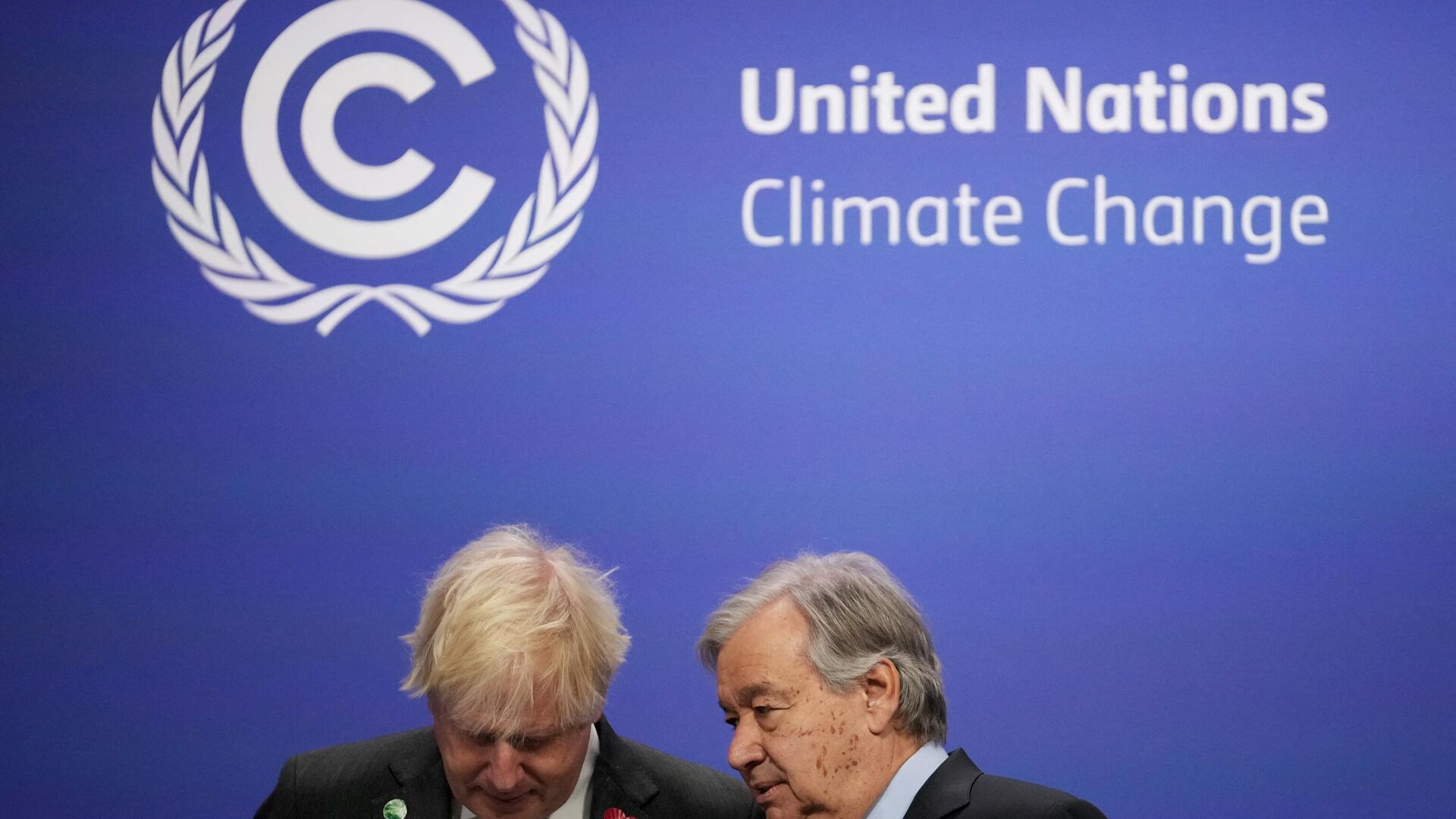COP26: Over 100 World Leaders Pledge to End Deforestation by 2030
10:20 GMT 02.11.2021 (Updated: 15:16 GMT 28.05.2023)

© AFP 2023 / CHRISTOPHER FURLONG
Subscribe
The 26th UN Climate Change Conference is widely seen as one of the last attempts by the international community to deal with climate change. Ahead of the event major environmental organisations urged nations to slash greenhouse gas emissions, noting that a failure to do so will lead to catastrophic consequences.
Over 100 world leaders will promise to end deforestation by 2030 during the ongoing UN Climate Change Conference in Glasgow, UK media outlets have reported. According to The Guardian, British Prime Minister Boris Johnson, who is hosting the event, will unveil the agreement on 2 November.
"These great teeming ecosystems – these cathedrals of nature – are the lungs of our planet. They are essential to our very survival", the prime minister is expected to say as per The Guardian.
Among the signatories are key nations - Brazil, Canada, China, the Democratic Republic of Congo, Indonesia, Russia, and the United States. Indonesia is the world's largest producer of palm oil, while Brazil is home to the biggest rainforest. Russia's huge natural forests capture 1.7 billion tonnes of carbon dioxide annually (numbers provided by the International Institute for Applied Systems Analysis).
Combined together the said nations possess over 85 percent of the world's forests.
Other Pledges and Reaction From Environmental Organisations
The countries also pledged to donate $19.2 billion to developing countries in order to restore land damaged by wildfires and agricultural activity as well as to protect forests. At least $1.7 billion of the funding will be given to indigenous peoples and local communities, who are involved in tackling deforestation. A $1.5 billion fund will be established to protect the world's second largest tropical rainforest in the Congo Basin.
According to the BBC, 28 countries will commit to removing deforestation from the global trade of food and other agricultural products, while over 30 companies will pledge to end investments in deforestation-linked activities.
According to the BBC, 28 countries will commit to removing deforestation from the global trade of food and other agricultural products, while over 30 companies will pledge to end investments in deforestation-linked activities.
Forests are part of the planet's defence against global warming. Trees absorb vast amounts of carbon dioxide (CO2), which traps heat radiated from the Sun and consequently leads to climate change. Studies have shown that one third of CO2 emitted each year is absorbed by forests.
The news of the agreement on deforestation has prompted a mixed response from scientists and environmental organisations like.
Ana Yang, executive director at Chatham House Sustainability Accelerator, described the deal as "a really important step". Professor Simon Lewis, an expert on climate and forests at University College London, recalled that in 2014 nations made a similar declaration, which "failed" to slow deforestation.
Carlos Rittl, who works in Brazil for the Rainforest Foundation Norway, said the funding needs to be given "into the right hands", with an emphasis on indigenous people, who are committed to protecting the forest.
The 26th UN Climate Change Conference in Glasgow will be held until 13 November. The event is being attended by the leaders of almost 200 nations and is widely seen as an attempt to deal with the effects of climate change.
Carlos Rittl, who works in Brazil for the Rainforest Foundation Norway, said the funding needs to be given "into the right hands", with an emphasis on indigenous people, who are committed to protecting the forest.
The 26th UN Climate Change Conference in Glasgow will be held until 13 November. The event is being attended by the leaders of almost 200 nations and is widely seen as an attempt to deal with the effects of climate change.
The past decade was the warmest on record, with major organisations warning that if the international community fails to drastically cut greenhouse gas emissions the world will face catastrophic consequences – extreme weather events that may lay lead to the collapse of natural ecosystems as well as the inability to farm.
During the conference world leaders are expected to agree on the following issues:
setting an end date for the use of unabated coal;
phasing out diesel and petrol cars within 14-19 years;
reducing emissions from methane;
providing $100 billion in annual funding to developing countries to help them combat climate change.

